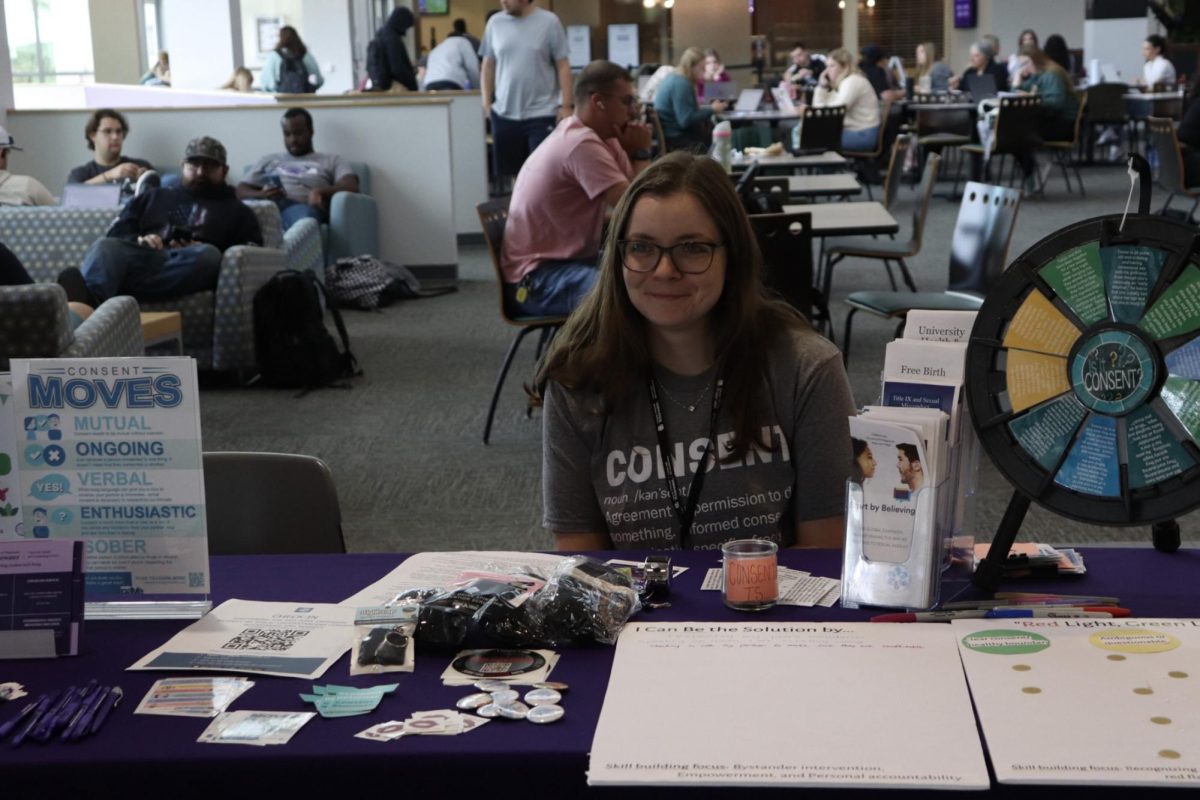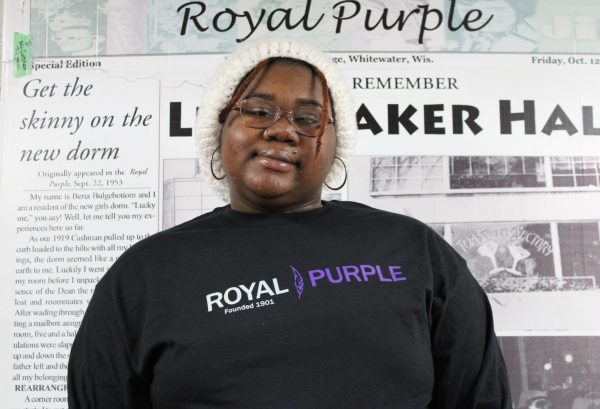“Your feelings are valid. You don’t need to apologize for your boundaries,” interpersonal violence prevention educator Katrisa Haagensen said.
This comment relates to the Shattering the Red Zone Campaign, an event focused on sexual assault and social boundaries that took place at the University Center from 10 a.m. to 2 p.m. Sept. 4.
During the event, students participated in an activity where they guessed whether various scenarios written on paper were examples of clear consent, non-consent or ambiguity, and then posted them on a board. They also had space to write down solutions for establishing healthy social boundaries.
Additionally, spinning a wheel provided an opportunity for discussions about whether a given scenario was an example of appropriate consent. By engaging in these activities, students were exposed to various situations and learned what constitutes appropriate consent.
Beyond just participation, event staff also explained to students how bystanders can intervene in specific situations to help. They also taught students about the conditions for genuine consent, helping them recognize healthy boundaries.
“I think just finding the basics of consent, regardless of intimacy or just platonic, it’s a very strong foundation for a good relationship,” said Jenica Giese, a peer educator running the booth.
She also noted that students showed great interest and actively participated in the activities.
This is not a one-time event, but a semester-long campaign held every Thursday. Haagensen explained the reason for its regular occurrence.
“Many students are new to campus, socializing in unfamiliar environments and establishing new relationships, which can lead to situations where they are more vulnerable,” Haagensen said.
She also detailed the potential impact of the event on students, stating, “I hope to see an increase in students’ understanding of key concepts such as: the recognition of consent, awareness of resources and understanding of healthy relationships; see a shift in students’ personal beliefs and sense of responsibility; for students’ confidence in their ability to intervene in a harmful situation as a bystander to increase, have a decreased tendency to blame survivors of violence, an increased understanding of how social factors contribute to interpersonal violence and for students to feel a greater sense of personal and collective responsibility for creating a safe and respectful campus environment.”
While the campaign primarily focuses on sexual assault, it also addresses general social boundaries. It has a long-term goal of continuously raising awareness among students, including incoming freshmen, at the start of each new semester.
The campaign is held every Thursday and is promoted on Instagram, Facebook, Connect2 and the UW-W calendar. The campaign is expected to provide long-term assistance to students.


